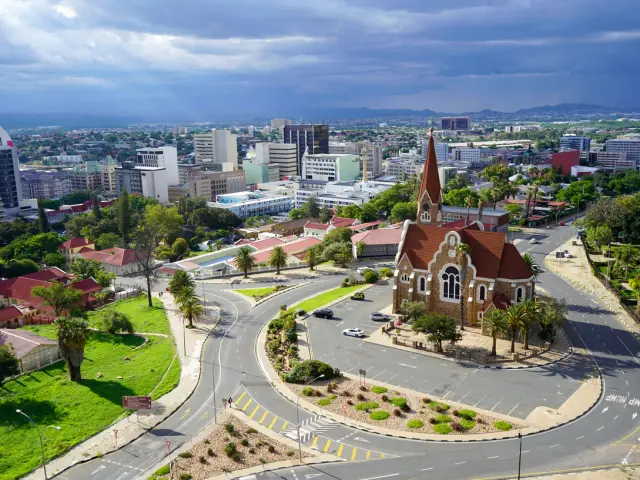With intra-African migration increasingly on the increase, the African Union (AU) has emerged as a central institution shaping the movement of individuals within the continent. For the Nigerian nation, Africa’s largest country and significant source nation of intra-African migrants, AU policies are likewise an enabler or barrier to their mobility across borders. From visa and trade agreements to labor mobility and residence, this piece explores the way that AU policies affect Nigerian migration across Africa in depth.
1. The African Union’s Vision for Free Movement
The AU promotes regional integration and continental mobility through a series of landmark frameworks:
a. Agenda 2063
Agenda 2063 is the AU’s blueprint for transforming Africa into a global player by 2063. Among the fundamental goals of the agenda is the free movement of persons, goods, and services. For Nigerians, the policy document this long into the future promotes the ease of movement of persons to work, study, or conduct business in other African countries.
b. Protocol on Free Movement of Persons (2018)
This protocol is perhaps the most straightforward AU policy that impacts relocation. It aims to:
- Establish visa-free travel among African nationals in member states
- Offer the right of residence and right of establishment
- Facilitate labor mobility and regional integration
Although Nigeria ratified the protocol, it is not yet evenly applied in African countries, slowing real-life effect for Nigerian migrants.
2. The African Continental Free Trade Area (AfCFTA)
The AfCFTA, into which Nigeria finally acceded in July 2019, is primarily a trade liberalization agenda but indirectly improves relocation opportunities:
- Business and Entrepreneurship: Nigerians seeking to relocate to be entrepreneurs or traders are improved by less restrictive trade barriers and increased access to markets.
- Intra-African Investment: AfCFTA policies encourage cross-border investment, which, in turn, can be equivalent to job creation and mobility of Nigerian professionals.
However, the AfCFTA does not presently directly address labor mobility, limiting its immediate impact on non-business migrants.
3. Visa Policies and AU’s African Passport
a. AU Visa-Free Policy Push
The AU encourages member nations to adopt visa-on-arrival or visa-free policies for African citizens. As of 2025:
- Few African countries provide Nigerians with visa-free entry (e.g., Senegal, Benin, Ghana).
- A few others continue to have tight visa regimes due to bilateral problems, security interests, or immigration pressure.
b. African Union Passport
The AU passport launched in 2016 is intended to facilitate free movement within Africa. However:
- It is currently issued only to diplomats and AU officials.
- Mass issuance to citizens, including Nigerians, has been delayed on grounds of national security and sovereignty.
Until that passport is widely accessible, Nigerians will still have to undergo cumbersome visa procedures when they travel.
4. Regional Economic Communities (RECs) and Free Movement
The AU works in close harmony with Regional Economic Communities, many of which have established free movement policies:
a. ECOWAS (Economic Community of West African States)
- Nigerians benefit significantly from ECOWAS Protocol on Free Movement of Persons (1979).
- This protocol grants visa-free movement, right of residence, and right of establishment within the 15 ECOWAS countries.
- Many Nigerians take advantage of this mechanism in order to move to Ghana, Côte d’Ivoire, Togo, etc.
b. EAC, SADC, COMESA, IGAD
- These other RECs also operate similar free movement mechanisms, but Nigerians do not receive the same treatment since Nigeria is not a member.
- Relocation to countries in East or Southern Africa like Kenya, Uganda, or South Africa is more difficult for Nigerians due to more restricted visa and work permit control.
5. AU Labor and Migration Policies
The AU has adopted a series of migration-related guidelines to regulate labor mobility and protect migrants:
a. AU Labour Migration Advisory Committee
LMAC synchronizes intra-regional labor migration policy and promotes ethical recruitment, fair wages, and skill recognition beneficial to skilled Nigerians migrating for work.
b. AU Migration Policy Framework for Africa (MPFA)
This framework sets continental standards in:
- Labor migration
- Protection of migrant rights
- Remittances and diaspora engagement
However, in the absence of enforcement at national level, Nigerian migrants are only left with administrative obstacles and limited access to rights in destination countries.
6. Nigerian Relocation Barriers Despite AU Policies
Despite progressive AU policies, various barriers face Nigerians relocating in Africa:
- Xenophobia and Discrimination: Nigerian migrants have suffered xenophobic attacks or state-sponsored discrimination in countries like South Africa and Libya.
- Host Country Policies: Certain African states have immigration policies that are restrictive despite AU recommendations.
- Lack of Infrastructure: Poor transport links and unsatisfactory information-sharing between countries inhibit free movement.
- Security Concerns: Nigerians’ apprehension about terrorism, trafficking, or economic domination causes enhanced border security.
7. AU-Nigeria Bilateral Relations and Influence
As a very influential AU member state, Nigeria wields substantial influence in AU policy-making. Nigeria has:
- Lobbied for increased African integration and migration
- Participated in the development of migration protocols
- Lobbied through ECOWAS for regional resettlement
Nigeria’s own national policies i.e., its returnee migrant management and border closures in 2019 at times conflict with the AU’s open-border ideal.
Navigating the Future of African Relocation
AU policies are extremely promising for facilitating Nigerian relocation across Africa, especially through free movement schemes, trade integration, and labor migration arrangements. Yet, lacking full ratification and enforcement by member states, these policies remain underutilized.
For Nigerians to fully enjoy the advantages of continental mobility:
- Additional countries must sign the Free Movement Protocol
- The AU passport must be made readily available
- Security and labor rights must be harmonized across borders
In the meantime, Nigerians intending to relocate within Africa will have to rely on a patchwork of AU instruments, regional groupings like ECOWAS, and separate bilateral agreements to pursue their dream of living, working, or studying across the continent.
Recommended Resources for Nigerians Planning Relocation Within Africa:
- AU Free Movement Protocol Document
- ECOWAS Free Movement Guidelines
- AfCFTA News
- Nigerian Immigration Service: Regional Agreement and Visa Policies Updates









Leave a Comment